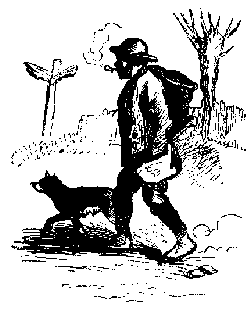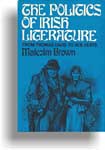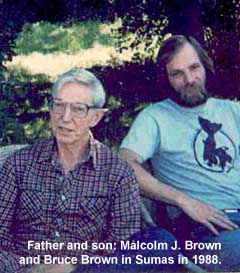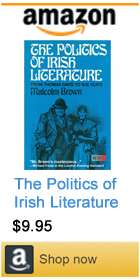Chapter Eighteen
After Kilmainham: Bakuninism in Phoenix Park
THE THING is done," said Gladstone of the Kilmainham treaty. So it was; but as with any bargain, some of the adversaries held the annoying thought that if they had tried harder, they could have won more. Chief Secretary Forster argued that Parnell was being lavishly rewarded, and for what? -- for agreeing to obey the law. He handed in his resignation. His replacement was Lord Frederick Cavendish, a relative of Gladstone's, an amiable and unassuming Liberal politician. His father, the Duke of Devonshire, and his brother, Lord Hartington, were disliked in Ireland, the one for making clearances, the other for enforcing coercion; but Cavendish himself was unknown. Lord Spencer replaced Lord Cowper as lord lieutenant. But Forster's coercionist brigadier during the land war, Thomas Burke, continued in his old assignment. At the finish of his role as the nation's jailer in the epoch of coercion, this well-hated civil servant was now to convert into a benevolent "Antiself" for the new era of good feeling.
When the doors of Kilmainham jail opened on May 2, 1882, Parnell walked out to find his own followers, too, very unhappy with the bargain. Their opposition Parnell set about forthrightly to confound. On May 5 he sent Davitt a letter in Portland prison beginning with the chilly salutation, "My dear Sir." It announced that he and Dillon were journeying to Portland on the day following to greet him on his liberation. During the train ride back to London Parnell gave him the new Kilmainham line bluntly:
- We are on the eve of something like Home Rule. Mr. Gladstone had thrown over coercion and Mr. Forster, and the government will legislate further on the land question. The Tory party are going to advocate land purchase, almost on the lines of the Land League programme, and I see no reason why we should not soon obtain all we are looking for in the league movement. The No-Rent Manifesto had failed, and was withdrawn. A frightful condition of things prevailed in Ireland during the last six months, culminating in several brutal murders, moonlighting outrages, and alarming violence generally.
Davitt was as irritated by the news as Forster had been on hearing it from his own chief.
II
Parnell's prime fear was of the Irish "secret societies." In the Kilmainham negotiations Chamberlain had made it clear that any hopes of "something like Home Rule" were contingent upon the restoration of Irish quiescence. Yet the ancient Ribbon reflex was well known to be stubborn. In America the Dynamitard Fenians were vocal and munificent. O'Donovan Rossa and Patrick Ford had caught the fever, collecting a generous "Skirmishing Fund" to finance terror against England on a grand scale. Native Irish terrorist impulses took new reinforcement from emanations of Bakhuninism arising out of Spain and Italy and from the nationalist movement inside the Austrian empire. Anarchist terror assassinated Tsar Alexander II and President Garfield just at the climax of the Irish land war. For the more impatient Irish patriot, there was a timely charm in the thought that he too could "strike a match and blow," following the teaching of "Red Jim" MacDermott's jingle:
- Not a cent for blatherskite,
- But every dollar for dynamite.
On the same Saturday that Parnell greeted Davitt at the gates of Portland prison, the Irish terrorists let their existence be unmistakably known. In Dublin the day had been devoted to festivity honoring the installation of the new reform chief secretary, Lord Frederick Cavendish. Following the ceremony, he left the Castle for his official residence in the compound at the Viceregal Lodge. On his way across Phoenix Park he fell in with the permanent undersecretary, Thomas Burke. The two dismissed their carriages and bodyguards and set out to stroll together arm in arm the quartermile or so home. Along the path they encountered a band of men walking together; and as they passed, one of the men seized Burke and stabbed him to death with a knife held, as one rumor put it, "between the third and fourth fingers." When Cavendish tried to rescue his companion, he too was stabbed to death. As the bodies lay in the grass, one of the band cut their throats. Some of the assailants then climbed into a cab and the others into a jaunting car and fled from the park at top speed in opposite directions, the cab back toward town, the car westward toward Chapelizod. Cards dropped secretly into the mailboxes of newspaper offices announced that the assassinations were the work of "The Invincibles." Two days afterward a printed apologia appeared on the streets signed "Executive of the I.R.B.," but it was immediately disowned by Kickham and O'Leary.
Parnell, as his biographer tells us, was at first "profoundly moved by the event," then "collapsed utterly." Mrs. O'Shea was with him at Blackheath surburban railway station when he bought the Sunday Observer carrying the news: "I noticed a curious rigidity about his arms. He stood so absolutely still that I was suddenly frightened, horribly, sickeningly afraid -- of I knew not what, and, leaning forward, called out, `King, what is it?"' His first thought was that the object of the assassinations was to ruin him politically, and he said to Davitt, "I am stabbed in the back." He called on Joseph Chamberlain at home and proposed to resign, but was dissuaded. He then wrote a note to Gladstone repeating the offer. "I was much touched," said Gladstone. "He wrote evidently under strong emotion." And he wrote him in reply that his resignation "would do no good; on the contrary would do harm." Put at ease, Parnell, together with Davitt and Dillon, sat down on Sunday afternoon to compose a manifesto "To the Irish People" condemning the murders. A final sentence, appended by A. M. Sullivan to add a tone of sincerity, expressed particular shame over the violation of Irish hospitality in the "cowardly and unprovoked assassination of a friendly stranger," that is, of Cavendish, and trusted that his murderers (and Burke's too, for that matter) would be brought speedily to justice...
|
|
Table of Contents
|

|
Astonisher.com is pleased to offer these excerpts from The Politics of Irish Literature by Malcolm Brown...
Praise for
The Politics of Irish Literature |
 |
|
"This brilliant study of the intersection of politics and literature in Ireland amounts to a dazzling portrait gallery. Reading it one feels about one the breath, warmth, and passions of the dead all come alive again."
-- Sean O'Faolain in the Manchester Guardian
"Mr. Brown's masterpiece has made me want to hire a nearby housetop and recite whole chunks to every passerby..."
-- Michael Foote in the London Evening Standard
"The author of the best book on George Moore now gives us what is in all likelihood the best book on the politics of modern Irish literature."
-- Virginia Quarterly Review
|
|

University of Washington Professor Malcolm J. Brown (1910 - 1992) with his son, Bruce Brown, in Sumas, WA, July 1988.
|
Additional reading -- Malcolm Brown's George Moore: A Reconsideration. Also see Bruce Brown's commentary on The History of the Corporation for Malcolm Brown's contribution to that work.
|
|
|






